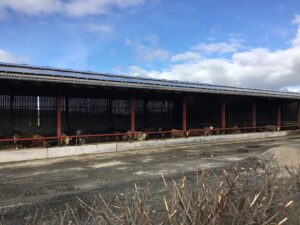 Expert professional advice when dealing with compulsory purchase transactions is vital to ensure the best result for all involved, says the Central Association of Agricultural Valuers (CAAV).
Expert professional advice when dealing with compulsory purchase transactions is vital to ensure the best result for all involved, says the Central Association of Agricultural Valuers (CAAV).
Compulsory purchase can be a difficult and adversarial process, but having knowledgeable advisers on the case can make all the difference.
“The law and practice which allows the state to acquire property against an owner’s will is complex and the stakes are high – homes and businesses are at risk,” says Kate Russell, policy and technical adviser at the CAAV. “It’s important that both sides – the acquirer and the claimant – get good advice from properly qualified and experienced practitioners.”
This is perhaps especially so in rural areas, as the nature of modern farming businesses means that compensation claims for compulsory purchase schemes can be very complex, she explains. “It is rare for the whole farm to be bought outright; frequently only part of the farm is acquired and so there can be adverse impacts on the remaining land.”
To add to this, current environmental requirements can mean that a farmer may also lose land to environmental mitigation works, says Ms Russell. “This can be more than that lost to the compulsory purchase scheme in the first place. On HS2 for example, many landowners will lose relatively little land to the railway itself, but a huge amount more will be taken to create new wildlife habitats, as bunds to reduce noise, or to plant woodland to screen the visual impact.”
The CAAV’s latest publication, Good Practice in Statutory Compensation Claims gives an update on recent changes to the law and sets out guidance for the management of claims and clients. The CAAV is now working with acquiring authorities including HS2 to deliver related training.
“Our publication highlights that good communication is absolutely key and yet it can be difficult to do it well,” says Ms Russell. “Compulsory purchase schemes involve a huge amount of uncertainty for those affected, often over long periods of time. Good communication can help reduce uncertainty and keep matters moving forward.
“Claimants need to feel that their concerns are heard and are being addressed, and need reliable information about the property and the claim. Agricultural valuers have a crucial role to play in helping to maintain good and effective communication.
“Likewise, acquiring authorities need to be properly advised so that they understand the nature of the land and property being acquired and the need for early engagement with those affected. Good advice can help the scheme proceed more smoothly, more quickly and so keep costs down.”
Due to the nature of the transaction, the whole process can become very adversarial, she explains.
“It is vital that agents act professionally and uphold high standards of behaviour. Advisers need to be aware of their professional responsibilities to their own clients and also to the other parties involved.
“At the heart of this is the need to treat all parties involved with the proper respect,” says Ms Russell. “The role of the agent is crucial for bridging the gap between the acquirer and claimant so that the disruption caused by the scheme can be kept to a minimum.”
For more information visit www.caav.org.uk.





